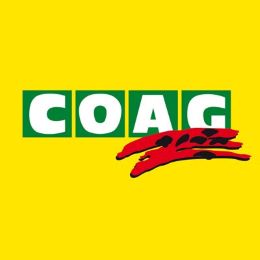
From COAG we have asked to provide a specific budget for ASF prevention. This budget must come from all parties involved, on the one hand from the administration and on the other from both the industrial and productive pig sectors as a whole, prioritizing effective actions and a greater prevention of the disease.
 To address the concerns of the pig sector about the threats of this epidemic, we have proposed the following measures:
To address the concerns of the pig sector about the threats of this epidemic, we have proposed the following measures:
- It is important to manage wild boar populations specially with the following measures:
- Establishment of a surveillance of the entrance corridors of wild boars along the borders with France (Catalonia, Aragon, Basque Country and Navarra) to prevent wild boards entering Spain.
- Drastic reduction of the density of wild boars, acknowledging hunting as an effective preventive measure. To achieve it the collaboration and coordination of the central, regional and local administrations, hunters, rural agents and Seprona is required.
- Control of hunting grounds with analyses of the wild boars of these grounds and control of the origin of these wild boars.
- It is indeed necessary to coordinate a long range strategy with the main pig producing regions. Institutional communication channels, through the corresponding general directorates, must be prioritized with periodic meetings to analyse the work being done.
In this respect, the Interporc interprofesional association is a valid tool to work with in the prevention, coordination and information messages to the sector and the public. And to convey the Ministry of Rural Affairs (MAPA) the concerns of the sector about the spread of the disease in Europe.
- It is necessary to reinforce the control at entrance points of the frontier, through surveillance of animal welfare 1 km before the frontier (especially in Catalonia, Aragon, Navarra and Basque Country) due to the important number of piglets imported that come from the EU.
It is important to ask for the documentation of animal welfare to all the transport vehicles that enter with piglets with serologies and with animals like calf, specially coming from ASF positive countries.
- We demand the correct bleeding of imported piglets and sanitary and biosecurity control of the destination farm.
- Control and monitoring of the concentration centres of imported piglets.
This must be operative. The results must be reported weekly so that the sector and administration can evaluate its numbers and efficacy.
- It is necessary to reinforce the biosecurity by improving the cleaning and disinfection of the transport vehicles at the exit of the slaughter houses. These vehicles move around the whole region, entering different farms, so that the danger of spread of a possible outbreak is very high.
Slaughtering houses must have their own cleaning and disinfection centre, as well as disinfection for vehicles with personnel specialized and trained in this task. We believe that it is not correct that the driver of the transport vehicle is in charge of this task.
- Biosecurity measures and requirements at farms must be reinforced, with homogeneous criteria applied in the whole region. We would like to know if data are available on the degree of fulfilment of the biosecurity measures.
It is crucial to force a 100% fulfilment of these measures.
- With respect to the budget, we demand that buying or renting a massive slaughter system must be accounted for in case an outbreak of ASF positive animals occurs.
- We must reinforce negotiations with third countries to acknowledge the regionalization system of the European Union set in place to control the spread of the African Swine Fever (ASF). This acknowledgement will allow to avoid market perturbations in the case of an outbreak of the disease.
Taking into account the importance of this market, the complete closure of a country has severe consequences for the whole sector.
To reassure consumers it is very important to clarify that African Swine Fever is not a zoonosis. Zoonosis are diseases that can be transmitted from the animals to men and vice versa, which fortunately is not the case. But it has large economic consequences, not only because the only solution is the slaughtering of all animals of the affected farm, but also because exports to third countries would be immediately banned.
Date
November 23rd, 2020




